Hibiscus plants are vibrant flowering plants. But, most of us are oblivious to its toxicity. Since many of us have domestic animals, whether the pets would be safe around Hibiscus plants or not is a great matter of concern.
Most Hibiscus plants are non-toxic to pets and other animals; however, some varieties like Hibiscus syriacus are hazardous. Experts claim that the roots and flowers of some varieties of Hibiscus are detrimental to a pet’s health, and it can lead to diarrhea, vomiting, and nausea.
There is no need to avoid growing Hibiscus, but you should be aware of their poison level and help your pets stay away.
Now, let’s learn about the toxic features of Hibiscus. I will also share some actions if your pets have accidentally consumed the plant and some preventive measures.
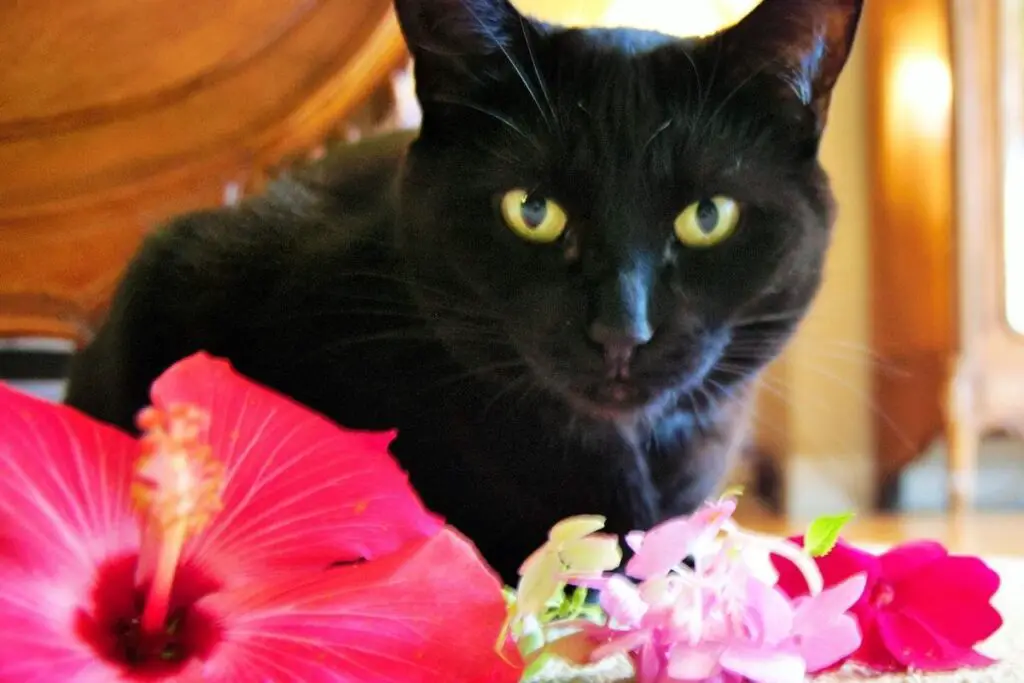
Are Hibiscus pet-friendly plants?
Most of the varieties are considered pet-friendly except one, Rose of Sharon.
It is poisonous to both dogs and cats.
However, there is no agreement because both ASPCA and AR Agriculture claim that they are safe for pets.
But, there has been proof that if a dog or a cat consumes this Hibiscus in huge quantities, they are likely to have nausea, vomiting, loss of appetite, and diarrhea.
As for the hardy Hibiscus plants, they are not dangerous for any of your pets.
Even the Chinese Hibiscus is considered pet-friendly.
Consuming Hibiscus flowers can provide a sufficient amount of key antioxidants and vitamin C to small animals like rabbits.
But still, it is better not to consume any Hibiscus in huge amounts, even if it is non-toxic.
Although there is no consensus about Rose of Sharon, keeping them away from pets is a good choice.
In the next few sections, you will understand why it is necessary to keep Hibiscus away from pets.
How toxic are the Hibiscus plants to pets?
Though there are many things to find out about the toxic properties in the Hibiscus plants, one well-known property found in the plant is called Asparagine.
It is an amino acid that causes vomiting and internal blisters, due to which the dog struggles to swallow.
Hibiscus shows a mild effect on the cats.
The flowers, stems, and leaves are considered toxic for cats.
They can have diarrhea, loss of appetite, and vomiting.
Though the symptoms are mild and should decline over time, you must take your cat to a vet before anything worse.
The roots of the Hibiscus plants are more poisonous than the other parts of the plant.
If consumed, the pets will have more severe issues like mouth burning, gagging, coughing, difficulty swallowing, etc.
No matter what the toxic level is, always take your pets to the doctor when you find them swallowing Hibiscus or if you see any symptoms of poisoning.
Signs of poisoning in pets
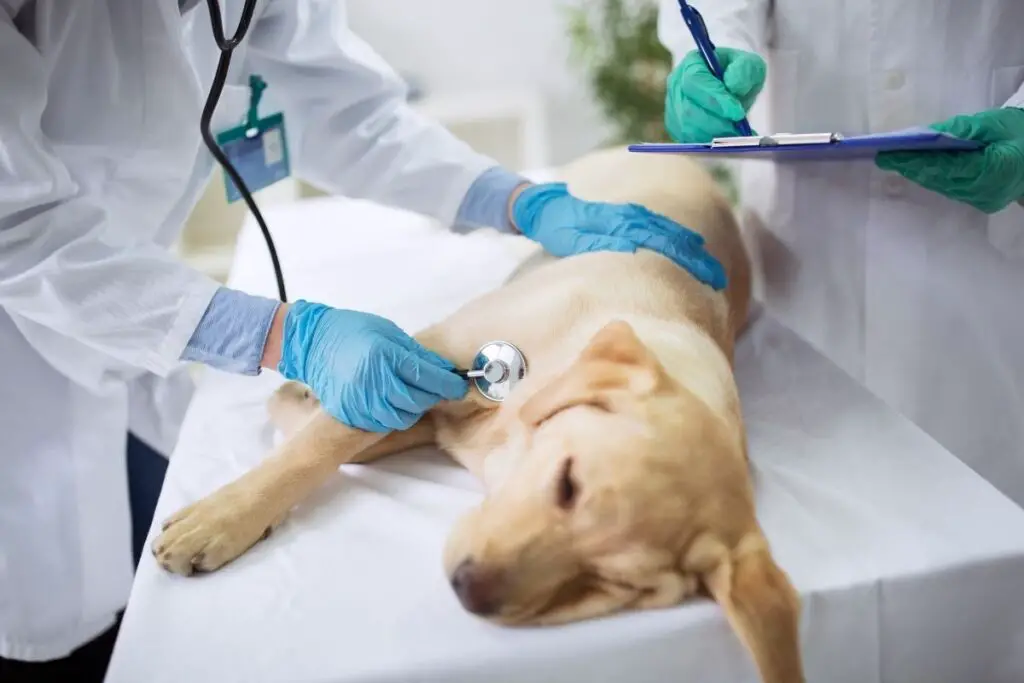
As explained, Hibiscus leaves and flowers are stems toxic to pets.
Roots are highly toxic. Some varieties can have mild gastrointestinal symptoms, whereas some will show intense signs of poisoning.
Some evident symptoms of poisoning are:
- Vomiting
- Loss of appetite
- Diarrhea
- Mouth or throat burning
- Gagging and coughing
- Corneal damage
- Difficulty in swallowing
- Tongue swelling and blistering
Now, let’s see find out the signs pets have individually.
Looking for gardening supplies? We have tested 100's of products before recommending them to you guys. Check out our best pick below:
| Image | Gardening Supplies | Best Price? |
|---|---|---|
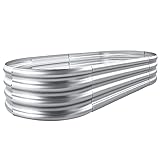 Top
Top Top
Top | Raised Garden Bed Kit | Check On Amazon |
 | XLUX Soil Moisture Meter, Plant Water Monitor, Soil Hygrometer Sensor for Gardening, Farming, Indoor and Outdoor Plants, No Batteries Required | No Results |
 Top
Top Top
Top | 82 Pcs Garden Tools Set and Extra Succulent Tools Set | Check On Amazon |
 | Joeys Garden Expandable Garden Hose with 8 Function Hose Nozzle, Lightweight Anti-Kink Flexible Garden Hoses, Extra Strength Fabric with Double Latex Core, (50 FT, Black) | No Results |
 Top
Top Top
Top | Dual Chamber Compost Tumbler | Check On Amazon |
 Top
Top Top
Top | Sunnyglade Plant Stakes | Check On Amazon |
 Top
Top Top
Top | Organic Cold Pressed Neem Seed Oil | Check On Amazon |
 Top
Top Top
Top | Mighty Mint Gallon :-Insect and Pest Control Peppermint Oil | Check On Amazon |
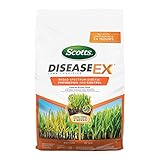 Top
Top Top
Top | Scotts DiseaseEx Lawn Fungicide | Check On Amazon |
 Top
Top Top
Top | Jacks Classic 20-20-20 All Purpose Fertilizer | Check On Amazon |
 Top
Top Top
Top | 30,000 Seeds Pollinator Attracting Wildflower Mixture | Check On Amazon |
 Top
Top Top
Top | Survival Vegetable Seeds Garden Kit-Over 16,000 Seeds | Check On Amazon |
Which pets are sensitive to Hibiscus plants?
Cats, dogs, and small and big animals are vulnerable to Rose of Sharon.
This one variety is the dangerous one.
The roots of all the varieties are more poisonous.
If eaten in small amounts, they will experience mild problems which will usually disappear within some hours or days.
But if ingestion is huge, it will make the animals very sick.
Animals like deer, horses, goats, and small animals like rabbits and squirrels will munch your Hibiscus leaves, flowers, and stems sooner or later.
Though all the animals are good at understanding their good or bad, they will not think twice when hungry.
It is always essential to train your animals not to wander around the plant or munch them.
We will share with you various ways to control them later on.
Is Hibiscus poisonous to dogs?
Dogs sometimes feed on plants because of various reasons, like:
- It is their natural behavior to hunt and scavenge.
- They feed on plants, but they also chew sticks and toys.
- Either they are hungry, or they are in the mood for mischief.
Dogs are curious by nature.
When they find something new around them, they move around them and sniff them constantly to understand it.
They will also chew to taste it.
As I mentioned earlier, 1-2 varieties are toxic and others non-toxic.
But that doesn’t mean your dog can feed on non-toxic ones.
Hibiscus can be poisonous for dogs in many ways:
- Since Hibiscus contains high fiber, eating excessive fiber can cause loose stool or diarrhea. Some dogs are sensitive to excessive fiber in their diets.
- Sometimes the plants are sprayed with chemical or organic pesticides to prevent bugs. These can harm the dogs and result in an allergic reaction.
- Your dog is naturally allergic to Hibiscus plants.
Some allergic symptoms in dogs are:
- Diarrhea
- Nausea
- Fever
- Excessive grooming and itching
- Lethargy
Here are some symptoms of Hibiscus poisoning in dogs:
- Difficulty in eating or drinking
- Excessive scratching around the mouth and face, indicating a burning mouth
- Blistering or swelling in the tough and mouth
- Eye pain due to corneal damage
- Coughing, nausea, and vomiting
- Diarrhea
- Blood in dog’s vomiting and stool
If you find any of these signs or weird behavior in your dog, you should immediately consult a vet.
The faster you consult, the faster your dog will cure.
Is Hibiscus poisonous to cats?
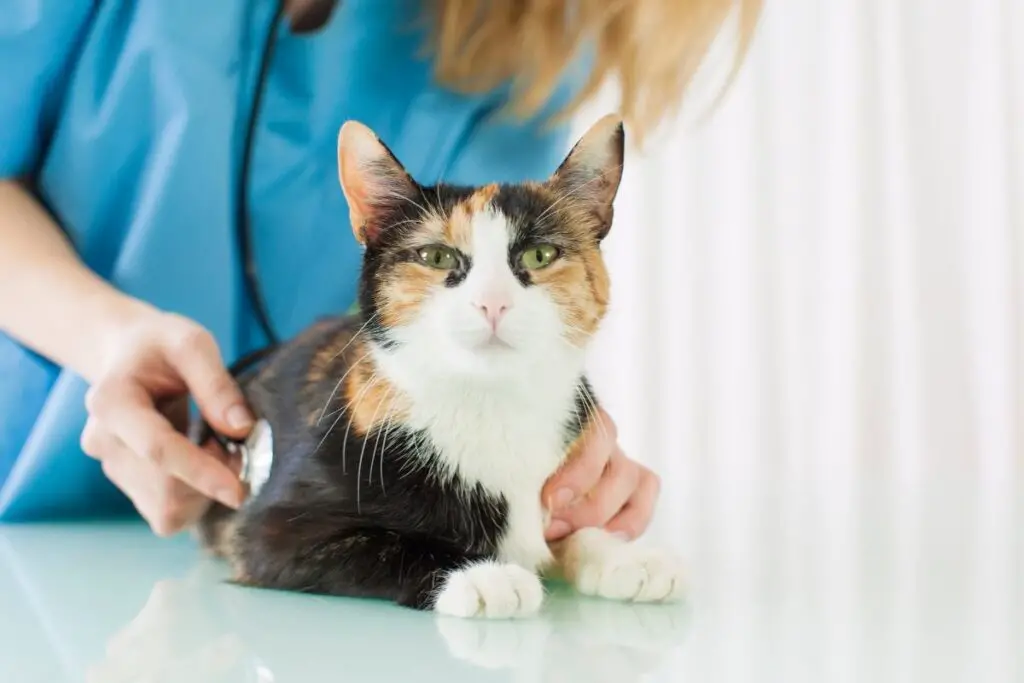
Just like the dogs, Hibiscus is toxic to cats too.
Cats are naturally curious and attractive to colors.
Since Hibiscus can develop colorful flowers, they would love to taste them.
Moreover, cats eat up green grasses and leaves of plants when they face stomach upset.
It is their way of curing any digestive issues.
If the cats eat any part of Hibiscus, they will become ill.
However, the danger is milder compared to dogs.
The stems, flowers, and leaves will have a harmful reaction in the cat right after feeding.
The symptoms of poisoning are:
- Nausea and vomiting
- Diarrhea
- Loss of appetite
Hibiscus poisoning is temperate in cats and won’t kill them.
The symptoms will pass away after 48 hours.
In this time, make sure that your cat is well-fed and stays hydrated.
If the pet doesn’t respond well within 1-2 days, take them to the vet.
If the cat is ill for a very long, it will become dehydrated by releasing excessive fluids before it can restock any.
In such a condition, the vet will hydrate them with intravenous fluids.
You have to admit your pet to the hospital for this treatment.
Is Hibiscus toxic to other animals?
Small animals like rabbits and guinea pigs and big animals like horses will have the same effect of Hibiscus as dogs and cats.
They, too, will experience nausea, diarrhea, vomiting, and loss of appetite if they feed on any parts of Rose of Sharon.
Horses will also face colic.
However, the Hibiscus flower is beneficial for rabbits.
It helps them to improve digestion, immune system, and energy level.
You can feed them with non-toxic varieties.
You can also feed hamsters and chinchillas with dried Hibiscus flowers.
Since it can provide them with vitamin c and antioxidants, it will be nutritious and healthy.
You must always know about the diet of your particular pet before feeding it anything.
If you want to provide the small animals with Hibiscus, give other varieties and avoid the Rose of Sharon completely.
Though the Hibiscus flowers are good for some animals, it is better to try other alternatives to add to their diet, like dandelions or chamomiles.
Remember, no animals should feed on the roots as they are the most toxic part of all the Hibiscus varieties.
Will my pet die after eating Hibiscus?
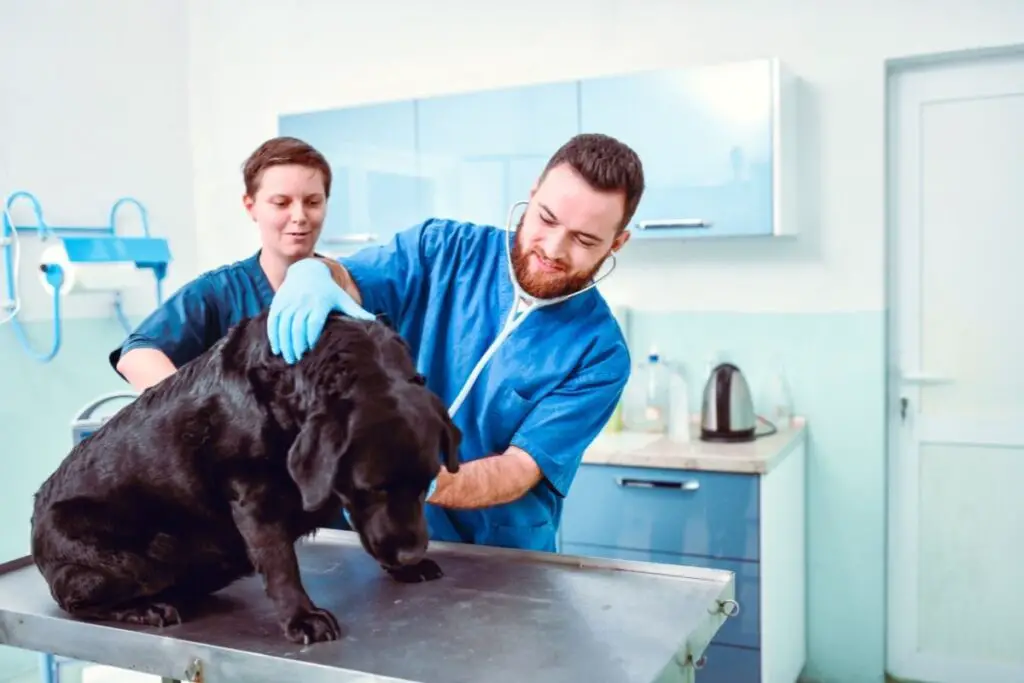
Most of the signs of Hibiscus poisoning are related to gastrointestinal and stomach upset.
Most common symptoms are vomiting, nausea and diarrhea.
The dogs experience internal blistering, blood in stool, and vomiting in severe cases.
The loss of fluids through vomiting and diarrhea can result in excessive dehydration.
This can be fatal for your furry babies.
It will not necessarily kill your pet, but it will weaken them to a great extent.
The faster you take action, the quicker your pet will recover.
The symptoms are generally mild in cats, and it won’t kill them.
The problem should resolve within 1-2 days.
If not, take them to the vet, where they will be treated with the help of IV fluids.
What do I do if my pet ate Hibiscus?
First, you need to ensure what variety they have consumed.
Though some varieties are not poisonous, you should not take any risk.
Depending on the variety, the pet may have a slight stomach upset.
But if they have consumed huge amounts or eaten the poisonous part of the plant, it is crucial to consult the vet.
If possible, take the sample or the ingested part to the doctor.
It will help them to detect the extent of the poisoning.
The doctor will examine your pet physically and perform blood tests and ultrasounds to understand any other symptoms and damage levels.
Once they are sure about everything, they will start the remedy related to animal poisoning – evacuation, detoxification, medications, and observation.
Follow all the instructions and medications provided by the doctor and go for a check-up regularly until your pet is completely fine.
How do I keep my pets away from Hibiscus plants?
If you wish to grow Hibiscus, it is better to avoid Rose of Sharon since it is the only one harmful to pets.
There are many varieties available, and they also frequently produce vibrant and stunning flowers.
But, if your growing zone is compatible with Rose of Sharon and you too wish to have this variety, try to keep the pets away from this plant.
However, only Rose of Sharon is not responsible for the poisoning.
Other Hibiscus could also be poisonous will lesser impacts.
Moreover, the roots of all varieties are always deadly.
If you want to have both the plant and pets, we can help you with some preventive measures to keep your pets away from the plant.
Keeping dogs away from Hibiscus
- Train your dogs: Dogs can be taught to stay away from Hibiscus. They are decent, obeying, and well-behaved creatures. It might take time to train them. Eventually, your dog will finally learn to stay away from the plants with daily practice.
- Create a fence: Creating a fence or any physical barrier around your garden bed will stop the dog from reaching your plant. If they fail to cross the barrier multiple times, they won’t give the next visit to your garden.
- Use dog repellents: Dogs detest bitter stuff like coffee. You can apply some dry coffee grounds in and around the Hibiscus soil bed. Your dog will stay away from it, and additionally, the coffee will work as an organic fertilizer.
- Use spicy mixtures: Mix some mustard powder with crushed dried peppers and spray them around your Hibiscus planting site. The spicy smell and taste will keep the dogs away from your plant. However, this method will only last if your region doesn’t receive frequent rains.
Keeping cats away from Hibiscus
- Grow cat grass: If your cats feel hungry for greens, they will feed on the grasses instead of your Hibiscus. In this way, both your cat and your plant will be safe.
- Use scents: Cats hate the scent of rue, lavender, pennyroyal, Coleus Canina, and lemon thyme. Plant some of these plants around your garden as a border.
- Use repellents: Commercial deterrents have the smell of predator urine. Spray them around your planting site. Before using them, find out whether they are non-toxic and harmless for your plants or not.
- Use prickly: Cats enjoy walking over soft areas. You can spread twigs, eggshells, or chopsticks as garden stakes. Once they keep their paw over it, they won’t give a second visit.
Keeping other animals away from Hibiscus
You must also keep other big and small animals like deer, horses, rabbits, guinea pigs, hamsters, and chinchillas away from the Hibiscus plants.
It can also save your plant from destruction. Some effective ways are:
- You can spread unwashed dog or cat hair over the garden bed. The smell will keep the animals away.
- Grow strong-scented plants as companions.
- Use wind chimes and wind harp. The animals don’t enjoy the noise much.
- Scatter some prickly stems around your garden.
- Find out the areas that make it easy for the small animals to enter your garden and block them.
- Install automatic sprinklers.
Note: If your plant is indoors, keep them above at some higher location or use hanging baskets to keep it out of the reach of pets.
Final thoughts
Having Hibiscus will make your garden look attractive and stunning. Various colors can also attract pollinators and increase the chances of flowering.
If you have pets, be careful about the plants’ location. Find a place where the pets don’t visit much. You can also train them to stay away.
If your pet has taken any bite by mistake, instantly take it to the vet.
If you haven’t seen them eat the plant, identify the symptoms and consult the vet immediately.
Take preventive measures like fencing, repellents, and scents, creating noise with harps and chimes, prickly elements, etc., to keep animals away.
Avoid growing Rose of Sharon as this variety is the poisonous type. Even if you grow non-toxic Hibiscus plants, take precautions because they might still have mild effects on your pets.
Reference: Wikipedia, ASPCA, Louisiana State University Agricultural Center, American Society for Horticultural Science, Tropical Hibiscus by Texas A&M University, Sciencedirect.
